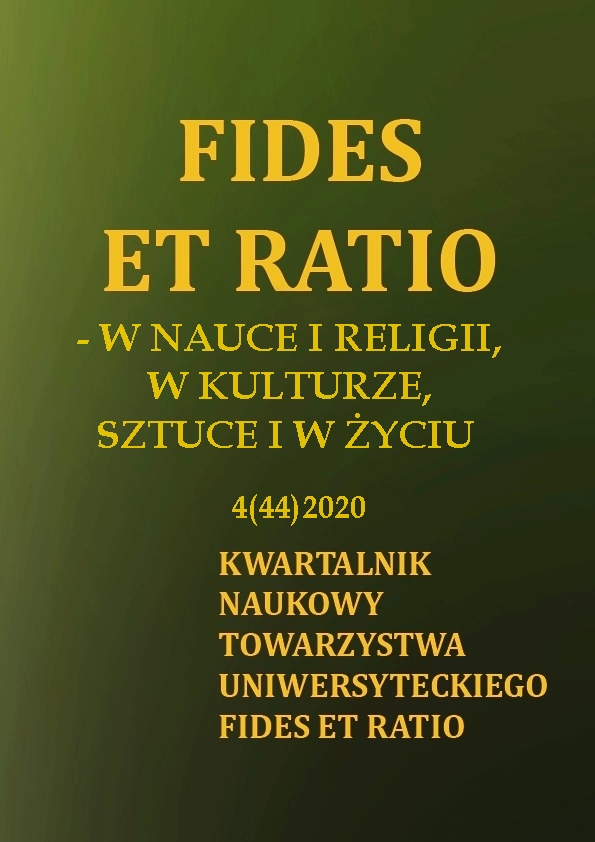Abstract
The text refers to John Paul II’s teaching on freedom and conscience, expounded in theencyclical Veritatis splendor. It is confronted with the views held by John Henry Newman and JosefRatzinger. The main question concerns the man's possibility/impossibility of recognition of his owndeficiencies regarding basic moral norms. Is it possible for a believer to be so morally lost that livingobjectively in a state of grave sin, he subjectively recognizes the continuation of this situationas a moral duty?
Downloads
Download data is not yet available.
